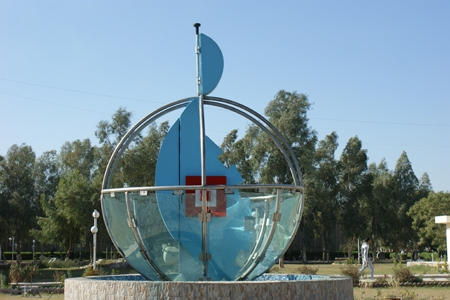
Today the knowledge translation is considered as one of the most important solutions to grade up the health of community, to update the health care quality, and to accelerate transformation of the scientific research to application, and to bridge the gap between knowledge and application. And on the basis of continuing efforts to raise the awareness level about consolidating system of health care in work environment, the College of Medicine / Al-Nahrain University held a scientific symposium about knowledge translation in universities and research institutes with participation of a number of researchers, specialists and academics in the Middle East area.
The seminar’ objective was to comprehend the ways of correct moral application of production, distribution, and exchanging of knowledge, to improve and provide effective health services, to consolidate health care system, to study and put knowledge translation at selected medical colleges and health institutes in the Eastern Mediterranean region to detect the strength and weakness areas in this field.
The seminar included a research, entitled “Translation of Knowledge” in the Selected East Mediterranean Universities and Research Institutes”, which was presented by Prof. Dr. Ban Abbas Abdul Majid, a teaching staff member in Pathology and Forensic Medicine Branch.
The research, in its seven chapters, dealt with the priorities arrangement, research quality, and timing, researchers’ abilities in knowledge translation, requirements, and necessary needs to translate knowledge, to consolidate and evaluate using evidences, interaction with research users as well as processes and systems supporting to translate knowledge.
The research recommended the necessity concern of universities and research institutes to develop researchers’ capability to strengthen their abilities in communicating with beneficiaries, and to transfer the results of their research into reality, as well as to ensure knowledge exchange between research and health institutions through information networks and providing a common ground to identify research priorities, which ensure health system requirements.
The study concluded that there is a lack of appropriate environment for knowledge translation, in the region’s countries, which requires the invitation of international organizations, such as the World Health Organization (WHO), to play a role in supporting and guiding the region to concern about translation of knowledge and put strategies depending on each country’s needs, as well as to expand the study to cover the current status of Iraqi medical colleges, in addition to designate a representative for each college to achieve targets considering the knowledge translation as a part of medical continuing teaching programs for teachers and graduates to guarantee the participation of those involved in scientific research and its applications. Moreover, an overture should be done with the Ministries of Health, Environment and Labor and Social Affairs to put scientific priorities in coordination with the Iraqi medical colleges. These priorities can be credited within the scientific projects and the necessity to adopt ethical standards in research concerned with an individual's health and life, restricting them in researchers who are qualified enough for their education to deal with human health and capabilities. And finally to support doctors working in the Ministry of Health to work within the research projects of basic sciences being an academic pedestal through which the advancement of applicable and clinical research side of Sciences and specialties can be achieved.
Al-Nahrain Media / Hind Sa’eid
